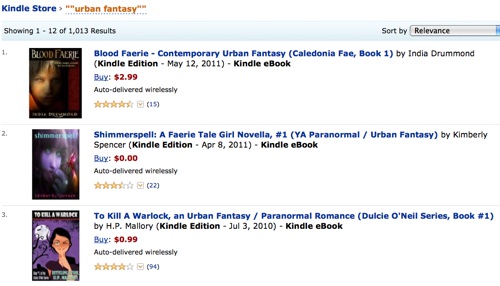 Wondering what the future of books will look like? You’re not the only one. Today, indie author Jared Sandmann is joining us with a guest post on where things might be headed.
Wondering what the future of books will look like? You’re not the only one. Today, indie author Jared Sandmann is joining us with a guest post on where things might be headed.
* * *
Now that Borders Books has gone out of business, many in the publishing industry wonder what the future holds. Barnes & Noble is being kept afloat by its Nook, and Books-A-Million is cutting back on staff and operating hours. So what will the bookselling landscape look like a decade from now?
While I don’t possess a crystal ball, I do have a few ideas. The era of the mega-retailers is coming to a close; in the wake of these superstores, a new wave of independent bookshops will make a resurgence, the very type muscled out by chains like Borders and B&N over the past twenty years.
I think e-books will dominate sales within the next few years. E-books sales are growing as quickly as mass market paperback sales are eroding; however, there will be holdouts who prefer a book’s physicality. Some readers like to handle a novel and thumb through the pages before making a decision whether to buy it. In that regard, online shopping cannot compare to brick and mortar stores. These days many people use bookstores strictly for browsing (and that’s really the bookstores’ fault, a business strategy that backfired). Readers make a mental note of which books look interesting, then later they buy them cheaper from some online outfit. This combines the convenience of window shopping, the Internet’s biggest weakness, with the ease of finding a book’s best price.
In this sluggish economy, most public libraries are strapped for cash. If they could broker a deal with major publishers, institute some system wherein readers peruse and purchase books on the spot (for a percentage of the profits, of course), I think both libraries and publishers can win. After all, people are more apt to buy when they know each sale helps their library, their community.
Each book could come with a unique QR code that readers scan if they want to download a digital copy direct to their e-readers. Or perhaps the QR code could be proprietary to the library system rather than the publisher, whichever is more beneficial.
In the long-term (maybe a generation from now), libraries and indie bookstores will be equipped with POD capabilities. Print on demand technology like the Espresso Book Machine will be available to those who favor physical books. Any file uploaded into the system can be printed and bound within minutes, ready for sale before the pages have even cooled. The problem at the moment is that they’re prohibitively expensive (about $100,000 dollars per unit) and not widely available. Once that price comes down, I think they’ll become popular with readers and booksellers alike.
An e-reader is like owning a portable bookstore that never closes. Downloading a digital book is as easy as pressing a button. I foresee a time when buying a physical copy will be just as simple. One day I’ll be able to place an order with a local library or book dealer and pick up my freshly-printed books within minutes.
Jared Sandman’s Blogbuster Tour 2011 runs from July 1st through August 31st. His novels include Leviathan, The Wild Hunt and Dreamland, all of which are available at Amazon, Barnes & Noble and Smashwords. His next book, The Shadow Wolves, will be released in August. Follow him on Twitter (@JaredSandman) and be entered to win one of several $25 Amazon gift cards. See rules at www.jaredsandman.com for eligibility.
Thoughts? Chime in below!

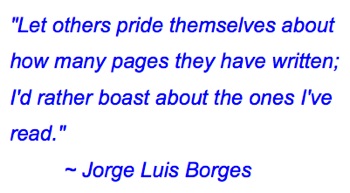 Today’s guest post isn’t from an author; it’s from a reviewer. My Twitter buddy, Frida Fantastic (it’s possible that’s not the name on her birth certificate, but we won’t pry) has agreed to give some tips on what reviewers want (and what will have them deleting your submission faster than spam emails promising body part enhancements).
Today’s guest post isn’t from an author; it’s from a reviewer. My Twitter buddy, Frida Fantastic (it’s possible that’s not the name on her birth certificate, but we won’t pry) has agreed to give some tips on what reviewers want (and what will have them deleting your submission faster than spam emails promising body part enhancements).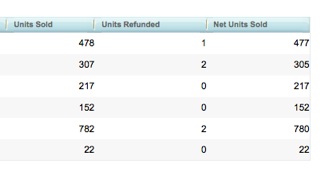 When I first started selling ebooks on Amazon, I don’t remember noticing a “refunds” column. Then, as I started selling more books, a number appeared there. What? Someone returned one of my ebooks? How could they?
When I first started selling ebooks on Amazon, I don’t remember noticing a “refunds” column. Then, as I started selling more books, a number appeared there. What? Someone returned one of my ebooks? How could they?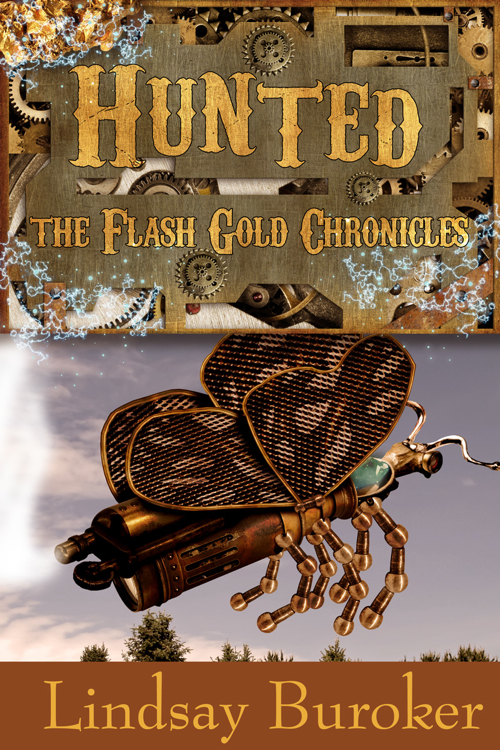
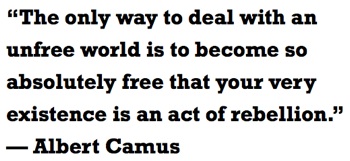 Last December, I was about an hour from uploading The Emperor’s Edge (my first full-length ebook) on Smashwords when I received an email from a literary agent.
Last December, I was about an hour from uploading The Emperor’s Edge (my first full-length ebook) on Smashwords when I received an email from a literary agent. We have a guest post today from up-and-coming indie fantasy author,
We have a guest post today from up-and-coming indie fantasy author, 
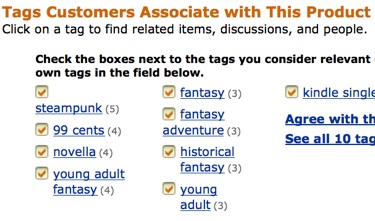 The other day, I blogged about how
The other day, I blogged about how 